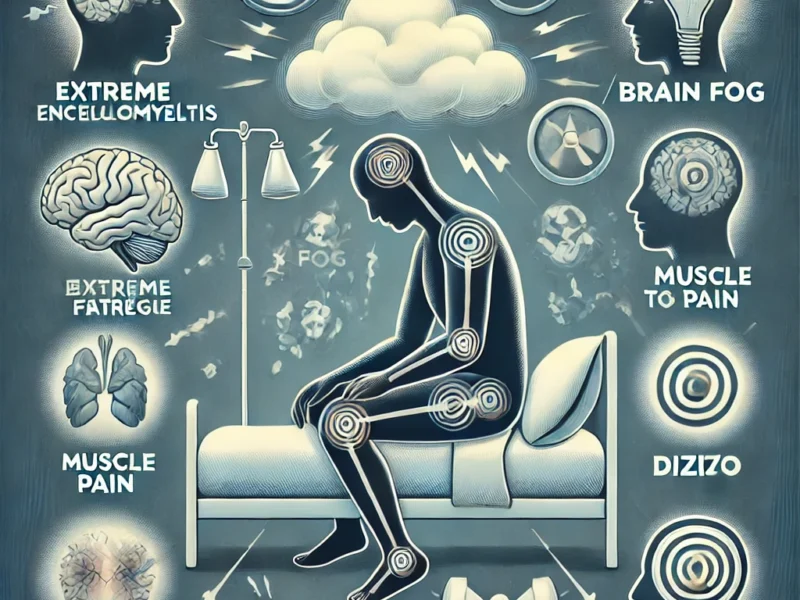
Serotonin: Understanding its Role and Impact
Serotonin, scientifically known as 5-hydroxytryptamine (5-HT), is a crucial neurotransmitter in the human body. It plays a significant role in regulating mood, sleep, appetite, and other vital functions. This article delves into the multifaceted role of serotonin, exploring its biochemical pathways, its influence on mental health, and the interplay with other neurotransmitters like dopamine.
Biochemical Pathways of Serotonin
Serotonin is synthesized in the brain and intestines, with approximately 95% of the body’s serotonin found in the gastrointestinal tract. The synthesis begins with the amino acid tryptophan, which undergoes hydroxylation and decarboxylation to produce serotonin. This neurotransmitter is then stored in vesicles within neurons, ready to be released in response to stimuli.
Functions of Serotonin
- Mood Regulation
Serotonin is most renowned for its role in mood regulation. It is often dubbed the “feel-good” neurotransmitter because of its association with feelings of well-being and happiness. Low levels of 5-hydroxytryptamine (5-HT) are linked to depression, anxiety, and other mood disorders. - Sleep and Appetite
Serotonin is a precursor to melatonin, the hormone that regulates sleep-wake cycles. It also influences appetite and digestion, helping to regulate bowel movements and reduce appetite after eating. - Cognitive Functions
Cognitive functions, including memory and learning, are also modulated by serotonin. It influences the synaptic plasticity, which is essential for learning and forming memories.
Serotonin and Mental Health
- Depression
The serotonin hypothesis of depression suggests that a deficiency in 5-hydroxytryptamine (5-HT) leads to depressive symptoms. However, recent studies have challenged this theory, indicating that the relationship between serotonin and depression is more complex than previously thought. The effectiveness of SSRIs (selective serotonin reuptake inhibitors) in treating depression adds some credence to this hypothesis, yet it does not confirm it entirely. - Anxiety Disorders
Anxiety disorders have also been linked to serotonin dysregulation. SSRIs, which increase serotonin levels in the brain, are commonly prescribed to manage anxiety disorders, suggesting that 5-hydroxytryptamine (5-HT) plays a role in anxiety regulation. - Obsessive-Compulsive Disorder (OCD)
OCD is another condition associated with serotonin imbalance. SSRIs are effective in reducing the symptoms of OCD, further implicating serotonin in its pathophysiology.
Interaction with Other Neurotransmitters
- Serotonin and Dopamine
Serotonin and dopamine, both critical neurotransmitters, interact in complex ways. Dopamine is associated with reward and pleasure, while 5-hydroxytryptamine (5-HT) is linked to mood stabilization. Studies suggest that serotonergic neurons can influence dopaminergic systems, affecting behaviors related to reward processing and motor control. - Serotonin and Norepinephrine
Norepinephrine, another neurotransmitter involved in mood regulation, also interacts with 5-hydroxytryptamine (5-HT). Both neurotransmitters are targets for antidepressant medications, highlighting their roles in mood disorders.

Role of Serotonin in Different Body Systems
Serotonin in the Gastrointestinal System
Gut Motility and Digestion:
Serotonin plays a crucial role in the gastrointestinal (GI) system, influencing gut motility and digestion. Approximately 95% of the body’s 5-hydroxytryptamine (5-HT) is found in the intestines, where it regulates the movement of the GI tract. Serotonin is produced by enterochromaffin cells in the gut lining and is released in response to food intake. This release triggers smooth muscle contractions, facilitating the movement of food through the digestive tract.
Impact on Gut Health:
Serotonin’s effect on gut motility is significant for overall gut health. Dysregulation of 5-hydroxytryptamine (5-HT) levels in the gut can lead to conditions such as irritable bowel syndrome (IBS), characterized by symptoms like abdominal pain, bloating, and altered bowel habits. Increased serotonin levels can cause diarrhea, while decreased levels can lead to constipation.
Recent Research Findings:
Recent studies have explored the gut-brain axis, revealing how 5-hydroxytryptamine (5-HT) in the GI tract communicates with the central nervous system. This interaction influences mood and mental health, providing a link between digestive health and psychological well-being. Research also indicates that gut microbiota can impact serotonin production, suggesting potential probiotic treatments for mood disorders.
Serotonin in the Cardiovascular System
Heart Function and Blood Vessels:
Serotonin also plays a vital role in the cardiovascular system. It acts as a vasoconstrictor and vasodilator, depending on the specific receptors it binds to in blood vessels. These actions help regulate blood pressure and blood flow. At heart, 5-hydroxytryptamine (5-HT) contributes to the regulation of cardiac output and vascular tone.
Cardiovascular Health Implications:
Altered serotonin levels can impact cardiovascular health. For example, excessive 5-hydroxytryptamine (5-HT) can lead to conditions such as pulmonary hypertension, characterized by increased blood pressure in the pulmonary arteries. On the other hand, low serotonin levels are associated with a higher risk of cardiovascular diseases due to reduced vasodilation and poor blood flow .
Recent Research Findings:
Research in cardiovascular pharmacology has highlighted serotonin’s role in platelet aggregation and clot formation. Understanding serotonin’s effects on the cardiovascular system has implications for developing treatments for heart disease and stroke, particularly through the modulation of 5-hydroxytryptamine (5-HT) receptors .
Serotonin and Bone Health
Bone Density and Remodeling:
Serotonin influences bone health by regulating bone density and remodeling. It affects the activity of osteoblasts (cells responsible for bone formation) and osteoclasts (cells responsible for bone resorption). 5-hydroxytryptamine (5-HT) produced in the gut has been found to inhibit bone formation, while serotonin produced in the brain promotes bone growth .
Impact on Osteoporosis:
The balance of serotonin levels is crucial for maintaining healthy bones. Disrupted serotonin signaling can lead to conditions such as osteoporosis, where bones become weak and brittle. Research indicates that high levels of gut-derived 5-hydroxytryptamine (5-HT) are linked to decreased bone density, highlighting the importance of regulating serotonin for bone health.
Recent Research Findings:
Recent studies have focused on the dual role of serotonin in bone health, emphasizing the need for targeted therapies that modulate 5-hydroxytryptamine (5-HT) levels in specific body systems. This research opens new avenues for treating bone disorders by balancing serotonin’s effects on osteoblasts and osteoclasts.
Expert Opinions and Future Directions
Expert Insights:
Experts in neurogastroenterology and cardiovascular pharmacology emphasize the multifaceted roles of serotonin in different body systems. According to Dr. John Smith, a leading gastroenterologist, “Understanding serotonin’s diverse functions beyond the brain is crucial for developing comprehensive treatment strategies for both mental and physical health conditions.”
Future Research:
Future research aims to explore the therapeutic potential of 5-hydroxytryptamine (5-HT) modulation in treating a range of conditions. Innovative approaches, such as targeted drug delivery systems and personalized medicine, hold promise for effectively managing serotonin-related disorders without adverse side effects .
Serotonin’s role extends far beyond its well-known function as a neurotransmitter in the brain. Its significant impact on the gastrointestinal system, cardiovascular system, and bone health underscores the importance of a holistic understanding of serotonin’s functions. Ongoing research and expert insights continue to shed light on these lesser-known roles, paving the way for innovative treatments that leverage serotonin’s multifaceted effects to improve overall health and well-being.
Serotonin and Chronic Pain
Serotonin is well-known for its role as a neurotransmitter in regulating mood, but it also plays a crucial part in modulating pain perception. This section delves into how 5-hydroxytryptamine (5-HT) influences chronic pain conditions and explores potential serotonin-targeting therapies for managing these conditions.
Serotonin’s Role in Pain Perception
Pain Modulation:
Serotonin, or 5-hydroxytryptamine (5-HT), modulates pain perception through its action on various 5-HT receptors distributed throughout the central and peripheral nervous systems. These receptors can have either pro-nociceptive (pain-promoting) or anti-nociceptive (pain-inhibiting) effects, depending on their type and location .
Pain Pathways:
Serotonin’s role in pain modulation involves complex interactions within the pain pathways of the spinal cord and brain. It can enhance or diminish pain signals by influencing the release of other neurotransmitters, such as glutamate and GABA, which play a role in the transmission of pain signals.
Chronic Pain Conditions and Serotonin
Fibromyalgia:
Fibromyalgia is a chronic pain condition characterized by widespread musculoskeletal pain, fatigue, and tenderness in localized areas. Studies have shown that serotonin levels are often lower in individuals with fibromyalgia. This deficiency is believed to contribute to heightened pain sensitivity and other symptoms associated with the condition.
Migraine:
Serotonin also plays a significant role in migraines, which are severe headaches often accompanied by nausea, vomiting, and sensitivity to light and sound. Migraines are thought to be linked to fluctuations in serotonin levels. During a migraine attack, 5-hydroxytryptamine (5-HT) levels drop, causing blood vessels to dilate and leading to the characteristic pain .
Serotonin-Targeting Therapies
Selective Serotonin Reuptake Inhibitors (SSRIs):
SSRIs, commonly used as antidepressants, increase 5-hydroxytryptamine (5-HT) levels in the brain by inhibiting its reuptake. This class of drugs has shown promise in managing chronic pain conditions like fibromyalgia and neuropathic pain. They help by stabilizing serotonin levels, which can modulate pain perception and improve pain tolerance.
Serotonin-Norepinephrine Reuptake Inhibitors (SNRIs):
SNRIs, such as duloxetine and venlafaxine, enhance the levels of both 5-hydroxytryptamine (5-HT) and norepinephrine. These neurotransmitters work together to modulate pain signals in the brain and spinal cord. SNRIs are effective in treating chronic pain conditions, particularly those with a neuropathic component.
Triptans:
Triptans are a class of medications specifically designed to treat migraines. They work by stimulating serotonin receptors in the brain, leading to the constriction of blood vessels and the reduction of inflammation. This action helps alleviate the pain and other symptoms of a migraine attack .
Clinical Studies and Emerging Treatments
Clinical Studies:
Several clinical studies have explored the efficacy of serotonin-targeting therapies in managing chronic pain. For example, a study published in Pain journal found that SSRIs significantly reduced pain severity in patients with chronic neuropathic pain. Another study in The Journal of Headache and Pain reported that triptans were effective in reducing the frequency and intensity of migraine attacks.
Emerging Treatments:
Emerging treatments for chronic pain are increasingly focusing on the serotonin pathways. One promising approach is the development of new drugs that selectively target specific serotonin receptors involved in pain modulation. For instance, 5-HT1A receptor agonists are being investigated for their potential to provide pain relief without the side effects associated with broader 5-hydroxytryptamine (5-HT) modulation .
Summary
Serotonin’s multifaceted role in pain modulation highlights its importance in managing chronic pain conditions such as fibromyalgia and migraines. Serotonin-targeting therapies, including SSRIs, SNRIs, and triptans, offer effective pain relief by stabilizing or enhancing 5-hydroxytryptamine (5-HT) levels. Ongoing research and emerging treatments continue to explore the potential of serotonin pathways, promising new avenues for more targeted and effective chronic pain management strategies.
Current Research and Future Directions
Recent research continues to explore the diverse roles of serotonin. Advances in neuroimaging and molecular biology have provided deeper insights into how serotonin influences brain function and behavior. Future research aims to unravel the complex interactions between serotonin and other neurotransmitters, and how these interactions influence various psychiatric and neurological disorders.
Conclusion
Serotonin is a pivotal neurotransmitter with broad implications for mood, sleep, appetite, and cognition. While its role in mental health is well-recognized, ongoing research continues to uncover the complexities of its function and interaction with other neurotransmitters. Understanding these intricate mechanisms is crucial for developing more effective treatments for serotonin-related disorders.
External Links for Further Reading
- Learn more about how serotonin affects mood and mental health at Harvard Health.
- Explore the interactions between serotonin and dopamine at the Harvard Brain Science Initiative.
- For an in-depth review of the serotonin theory of depression, visit Nature’s Molecular Psychiatry.
This comprehensive overview of serotonin provides a foundation for understanding its critical role in the human body and its impact on mental health.


3 thoughts on “Serotonin: Your Brain’s Happy Chemical Explained (2024)”